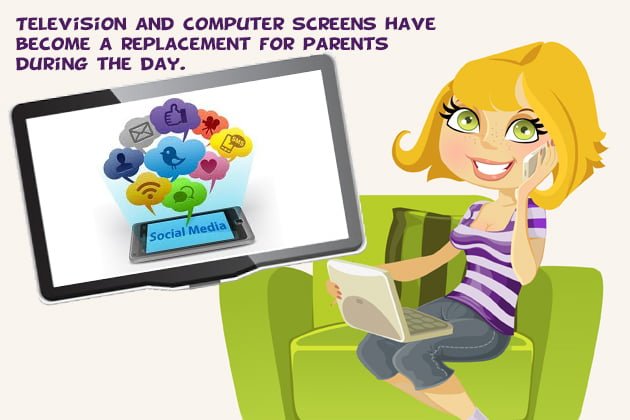By Gustavo A. Ramirez, Guidance Counselor / Education Consultant
“If we are forced, at every hour, to watch or listen to horrible events, this constant stream of ghastly impressions will deprive even the most delicate among us of all respect for humanity.” Marcus Tullius Cicero (Roman scholar 106 BC – 43 BC) I previously discussed the current need for providing guidance and professional mental health assistance to Youth in Belize to help them cope with ever-increasing stress triggered by constant violent events around them: shootings, bombings, murders, and vicious gang killings.
On an almost daily basis we see and hear of people being found chopped to death, gunmen opening fire on others, bodies being found, homes being invaded, and multiple gang murders along those lines – on television and computer screens everyday. Young people as well as adults respond stressfully to continuous reports of such violent traumatic situations. Feelings of confusion and fear pervade. Our younger population must learn constructive ways to vent their feelings and respond to all this graphic violence. I urge families, schools, and communities to provide support systems that give young people permission to seek and get help when they feel overwhelmed. Continuous violence, whether directly around us or reported by media, triggers feelings of anxiousness in all of us for our own safety and security.
Technology is what brings alive much of the oppressive violence that envelopes our young people everyday — in homes, poor, rich, and in between. Moreover, homes in our society today are quite different from those of 25 years or more ago. (I am not criticizing, merely pointing out.) In homes of the rich, poor, professional and well-educated, many children’s parents both (must) work outside the home everyday. Without a parent in the home at all times to monitor youngsters, stability is difficult to maintain in the daytime. There is no “average” family in a small country teeming with people of so many different nationalities: Creole, European, Spanish (from both Central and South America), West Indian, Asian, Middle and Far Eastern, and many others. Children, no matter what nationality, may or may not learn values and develop good habits while both parents work outside the home, and raise their children only “before or after work” each day. Television and computer screens have become a replacement for parents during the day.

In this age of advanced technology nothing is hidden from young people – they see and hear “everything” that happens each day. What they don’t see or hear, they can easily seek and find onscreen. A single radio station (British Honduras Broadcasting Service) signing off after the 9:00 p.m. Boledo announcement is ancient history now. Today we are connected to the entire world 24/7 via several radio and television stations, cell phones, Ipods, laptops etc.
Adults/parents can no longer control who/what influences children; unrestricted social media networks (television, Facebook, Twitter, You Tube, Chat rooms) are now the primary sources of information for young people. But, even if parents today have no control over the contents of radio, television, and social media sites, they can monitor (keep watch over) what their children see, hear, or participate in. How many parents do?
Despite the many things we cannot control, we can help our Youth to cope and not worry constantly over the actual and on-screen violence exploding around them everyday now. I urge everyone born before Hurricane Hattie to STOP saying, “I don’t understand these gadgets of modern technology; I’m from a different generation; modern technology is for this generation to use (and abuse).” We all need to change with the times! If we refuse to change, or adapt to change then we care only about the past not the future. How selfish! Our children are the future. Marcus Tullius Cicero reminds us, “Non nobis solum nati sumus!” (“Not for ourselves alone are we born!”)

Technology (television and internet social media networks) exudes violence every single day; but it can also be used to teach/educate and positively influence young people, not only entertain them. However, in internet rental outlets (cafes or rooms) and homes where parents own computers, everyday we see thousands of young Belizeans glued to computer screens playing loud, violent war games and screaming out vicious and deadly threats to each other at the top of their voices. Do they also have access to computers, free or at affordable rental prices, to do homework, carry out research, build websites, and create mind-blowing new inventions on the computer using their knowledge and imagination?
Our political, religious, and community leaders must realize or care that our children are being affected by what they see and hear around them, actual or on screen. Let us help our children to “digest” what they see, hear, and do everyday — whether they’re always in front of a television or computer screen, or deeply involved in a gang. Leaders of government, families, and communities: young people are our future! Whatever decisions we make, or don’t make, to help young people cope with the environment in which they live today determine the future of our country. An extremely conservative 85 year old Pope leads the Catholic Church today, and actively uses Twitter to get his messages across to millions of Catholics in different languages throughout the entire world. There’s an example of someone who is willing to adapt to change and “use” technology to try to influence others.
Author’s Note:
These articles on Education are not intended to be comprehensive or complete. They are written and contributed in an effort to provide a “starting point” for valuable discussion amongst educators, students, and the community. When we discuss and review students’ learning capabilities and the ways in which we currently try to educate them, we learn from our mistakes as well as success. Here’s to finding the best path to follow, fellow educators!











